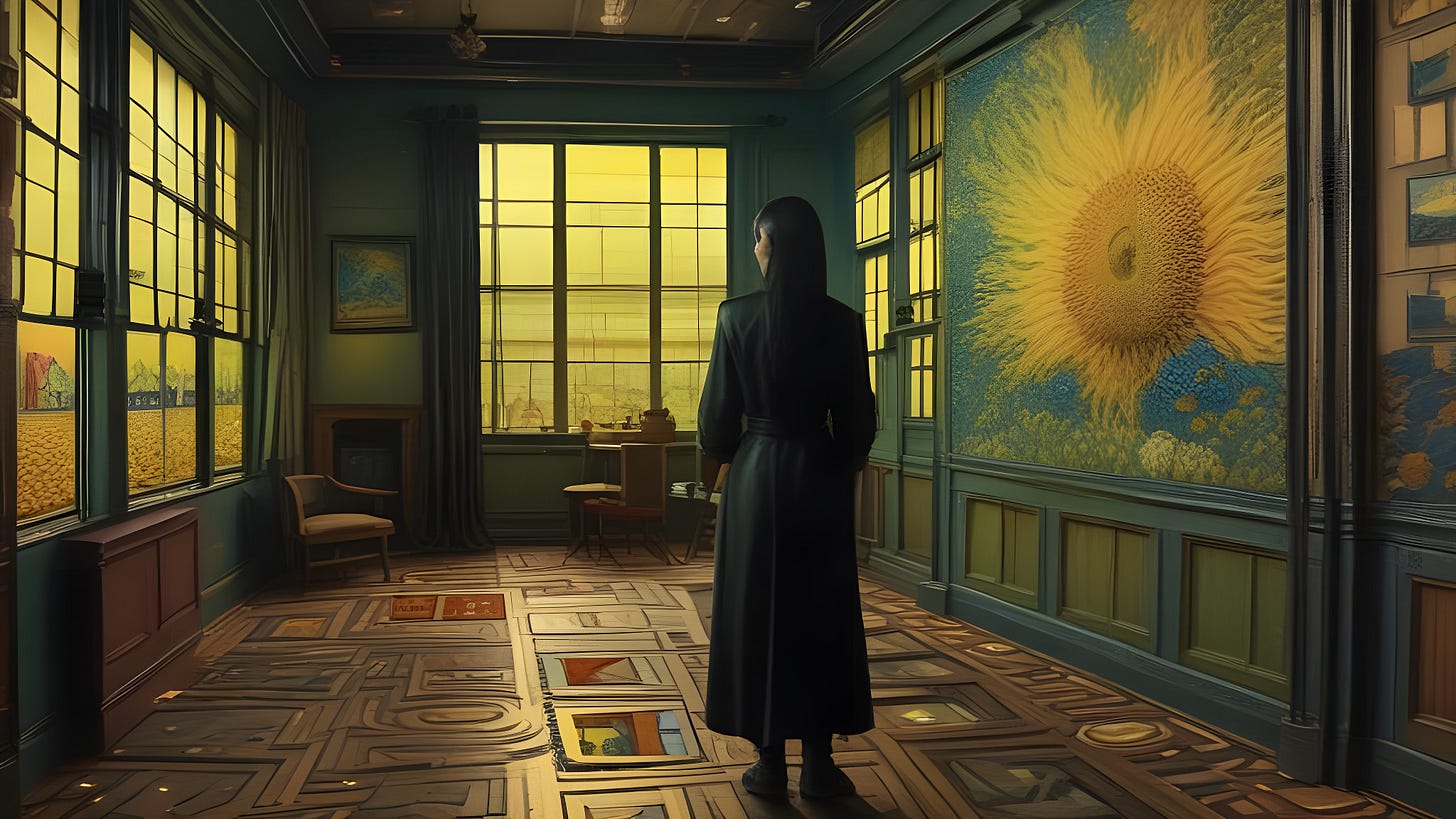Exploring the film The Substance in relation to Collective and Gestalt Psychology
Decoding Media: Storytelling and Collective Psychology
As I write this, I cannot help but reflect on my recent experience watching the film "The Substance" at the cinema. While it is impossible for me to provide a full review without re-watching and immersing myself in it again, I can share my thoughts from a Gestalt psychological perspective within the context of our collective psyche and the medium of storytelling through film. To simply say you "watch" this film would be an understatement. It is a body horror that reflects on the societal narrative perpetuated by media, where womanhood is only deemed valuable and desirable if it is young, flawless, and performative in its consumption by capitalism. In my opinion, the film is also a psychological horror experience through the lens of gestalt. Film, as seen in psychoanalytic film theory, can be viewed as a reflection of our unconscious desires and fears as individuals in relation to social conformity. Similarly, it serves as a reflection of our collective unconscious created by media and consumerism. "The Substance", when experienced through the filter of pattern recognition, bombards our senses with hypnotic suggestions from the very first scene.
Throughout the film, the use of striking visuals, colour symbolism, grotesque close-ups, and auditory cues serve as anchors that trigger intense emotional responses. It is not for the faint-hearted; you will truly experience this film. For me, what sets this film apart is its masterful use of psychological techniques and storytelling to expose both our collective desires and fears surrounding womanhood and its physical form. It highlights how our collective storytelling and psychology are intrinsically linked and can only truly be understood through the concept of the gestalt - that we are all part of a larger whole navigating between our ego, superego, and id within systems of control and coercion that we both internalise and contribute to through our interactions with them.
The film achieves this with its constant shifts between the inner world of the protagonist, a former film star and current TV fitness instructor played by Demi Moore in one of her most vulnerable and stunning performances, and the external forces of societal control. These external forces are driven by the insatiable desires of the masses, primarily men, and we see them from two perspectives: as an observer inside the protagonist's mind, seeing what she sees and feeling the disorienting impact of the audio, while also hearing the opinions and narratives of men. Additionally, we get a glimpse into this through the other self of Demi Moore's character, portrayed by a younger and more commercially attractive actor Margaret Qualey. This contrast highlights the juxtaposition between the protagonist's inner and outer worlds - her deliberate role as an object of desire for society, and her growing fears and desperation as her facade begins to crumble due to neglecting her true self.
I cannot provide any further information about the film aside from its exceptional representation of the gestalt experience - the combination of individual parts creating a collective whole - through storytelling. It reflects cultural and societal norms and delves into our conscious and unconscious fears and desires, drawing from psychoanalytic and Buddhist psychology. The medium used is a feminist satirical body horror. I highly recommend experiencing it but at your own risk.
This film has shown me the importance of incorporating social, cultural, philosophical, spiritual, and psychological concepts to better understand ourselves, others, society, and collective culture through media and storytelling. By taking this approach, we can analyse and challenge the actions of individuals and institutions in a more comprehensive manner.
This article assumes prior knowledge of Gestalt psychology, psychoanalytic theory, storytelling, and collective psychology. If these are unfamiliar to you, I encourage further exploration. Though my expertise lies in data-driven marketing, behavioural communication analysis, neurolinguistics, and hypnosis from a non-academic standpoint, I have gained valuable insights by also studying these additional aforementioned disciplines and theories. It has allowed me to deepen my understanding and critical thinking skills, something we could all benefit from if given the opportunity.
This is a live book writing project. Copyright is protected. It is a first rough draft so I would love to hear any feedback from readers.
This project is part of the SleeplessDystopian.com writing projects.







